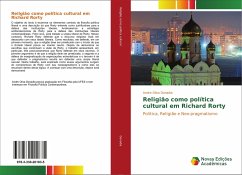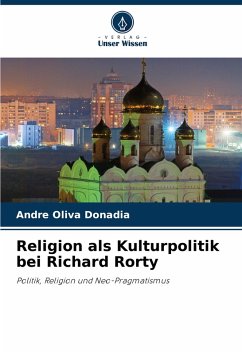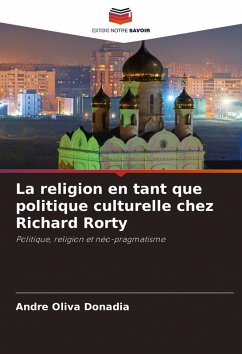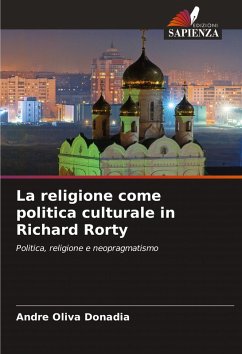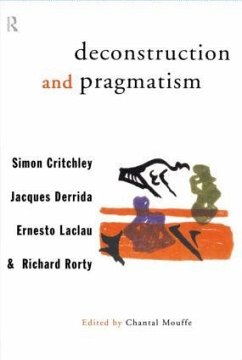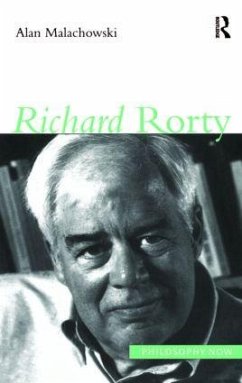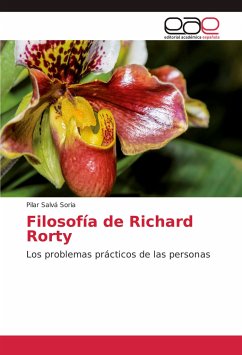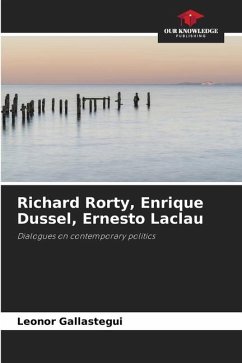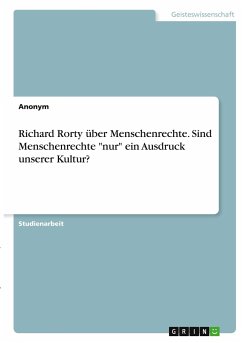
Religion as cultural politics in Richard Rorty
Politics, Religion and Neo-pragmatism
Versandkostenfrei!
Versandfertig in 6-10 Tagen
33,99 €
inkl. MwSt.

PAYBACK Punkte
17 °P sammeln!
The aim of the text is to examine the central elements of liberal political philosophy and a description of what Rorty understands as justifications for the defence of liberal institutions. We will analyse Rorty's anti-foundationalist strategy for the defence of contemporary liberal institutions. This will be followed by a discussion of Rorty's liberal utopia. In this context, Richard Rorty argues that religious discourse is at odds with his liberal ideals. As a result, he initially argues that religion should be privatised so that the liberal state can remain neutral. After demonstrating the ...
The aim of the text is to examine the central elements of liberal political philosophy and a description of what Rorty understands as justifications for the defence of liberal institutions. We will analyse Rorty's anti-foundationalist strategy for the defence of contemporary liberal institutions. This will be followed by a discussion of Rorty's liberal utopia. In this context, Richard Rorty argues that religious discourse is at odds with his liberal ideals. As a result, he initially argues that religion should be privatised so that the liberal state can remain neutral. After demonstrating the choices that constitute Rorty's vision, the paper will present, in particular, three positions that Rorty defends in his writings. The first argument is that religion should be privatised, the second is the defence of the marginalisation of ecclesiastical organisations and the third is that defending pragmatism results in defending a secular liberal utopia. In this paper, it will be explained how these arguments arise from Rorty's commitment to his neopragmatism and how they fit within this logic. Starting with a description, it will then be demonstrated.





